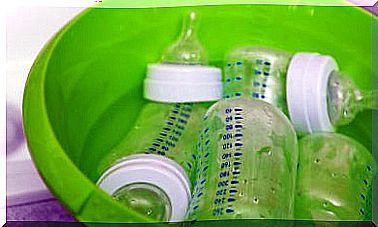Myths About Breastfeeding And Medication

For many mothers, breastfeeding and medication are two things that cannot be reconciled at all.
Undoubtedly, the ideal for mothers is to enjoy excellent health while breastfeeding, and not have any diseases or diagnoses. But unfortunately, nothing is perfect.
There are many myths surrounding this question, whether it is possible to take medication while breastfeeding.
The most important thing is to always follow your doctor’s instructions.
To dispel the myths surrounding breastfeeding and medication
Our article today is about demystifying notions that may exist around breastfeeding. We also want to make it clear that you should take your questions directly with your pediatrician.
Information from the internet should never be considered as expert help in the matter.
According to several studies, about 80% of all breastfeeding mothers should take some form of medication for various reasons.
Many women stop taking medication or breastfeeding for fear of side effects, all based on incorrect information on this issue.
What many mothers do not know is that most medications prescribed by doctors do not enter the breast milk that the baby drinks. Or that their presence is negligible and that there is no risk to the child.
In the vast majority of cases, the amount of chemicals from medicine in the milk is so small that it is almost impossible to detect, even during tests.
The same applies to topically applied drugs, such as corticosteroids or eye drops.
However, it is important that the baby does not have direct contact with the cream by touching the mother.

Where do the myths about breastfeeding and medication come from?
Almost all medicines on the market have the following wording on the label: “If you are breast-feeding or pregnant, consult a doctor before using this product.”
This information is absolutely relevant. A doctor is the only one who can decide if you should take the medicine at all, and if so, in what doses and according to what schedule.
But if we think about it, the warning that we should consult a doctor does not mean that the drug must be avoided completely.
The pharmaceutical companies are required by law to inform whether the product is to be avoided by breastfeeding mothers.
In those cases, the warning text must read: “Do not take this medicine if you are pregnant, may become pregnant, or are breast-feeding. If its use is necessary and there are no alternatives, breast-feeding should be discontinued during treatment. “
In that wording, there is a clear prohibition. But despite that, it is also clear that you only stop breastfeeding temporarily.
Reading the information on the medicine packaging should not make us anxious or make us believe that breastfeeding must stop forever.
Medications that can be taken by breastfeeding mothers
Many standard medications have passed all tests. It has also been proven that if taken correctly, they will not harm the baby or affect milk production.
These medications are:
- Ibuprofen
- Paracetamol
- Amoxicillin
- Penicillin
- Omeprazole

Medicines with breast-feeding restrictions
The drugs that are strictly prohibited for breastfeeding mothers are those that are effective against cancer and those that are linked to AIDS.
There are also treatments that, even if they do not pose a danger to the child, mean that you have to follow certain specific instructions as they can otherwise cause some form of discomfort.
Paracetamol, for example, is on the list of harmless drugs but should be taken after breast-feeding or at least two hours before as it is considered to cause drowsiness in the baby.
Propranolol for hypertension (high blood pressure) causes a decrease in milk production, even if it does not harm the baby.
The same effect is caused by birth control pills, which do not harm the baby’s health but hinder milk production.
When you understand that the problems often occur because you have not read the medical instructions correctly, you can feel calmer when it comes to taking medications that your doctor has prescribed for you.
Finally, it is important to remember that you should never self-medicate, for whatever reason.









